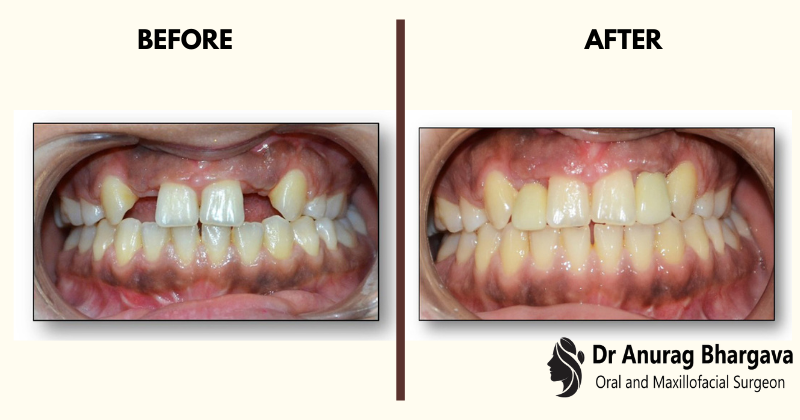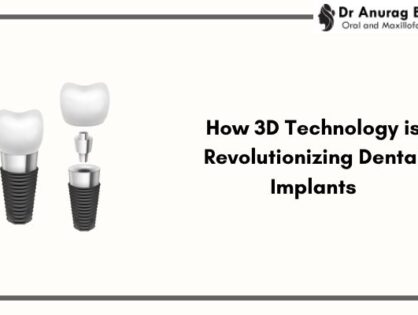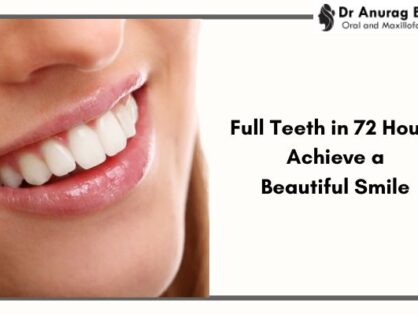Losing a tooth is a bad experience for anyone as it directly affects your confidence and smile. There is not only a single reason that can lead to tooth loss. Over the years, there are various habits and health issues that can result in this state.
So, let’s quickly discuss the causes that generally lead to tooth loss:
Causes of Tooth Loss
Here are the reasons why the teeth fall out in adults:
1. Bad Eating Habits
The most common reason for tooth loss is the habit of eating unhealthy food which leads to tooth decay when proper treatment is not given.
Every food that we eat directly affects our health. The food that leads to tooth decay is the ones that contain a high level of sugar. It is because the harmful oral bacteria consume the sugars that you eat for creating acids that gradually damage your tooth enamel. The cavities can further deepen inside the tooth enamel and inside the layers of your teeth resulting in pain and finally tooth loss.
2. Gum Disease
Another general reason for tooth loss is a periodontal disease which is the top cause of tooth loss within adults - that accounts for about 70 % of missing teeth.
It starts with inflammation and bacteria in your gums. As it develops, it damages the gum tissues and can damage the jawbone below the gums, leading in zero support for the teeth.
3. Dental Injury
Facial injuries and accidents are also in the top reasons for tooth loss. Accidents while driving bikes, cars or intense fights and collisions or a sports injury can be the reasons for accidental tooth loss. In most of the accidents, the tooth would get partially broken or a small piece of tooth would get removed.
It is always best to wear protective gears like mouth guards in games, seat belts and helmets while driving.
But, sometimes, even protective equipment is unable to prevent accidents from happening. At these times, the dental implants are the best option for you as it helps you to get back your teeth and beautiful smile.
4. Cavities
Cavities are basically the holes in teeth that are due to a bacterial infection leading to tooth decay. If not treated, a cavity can damage the pulp in the centre of the tooth which will ultimately develop the urgent need for a root canal or sometimes removing the tooth too.
You can restrict cavities by following proper oral health practices like consuming healthy food and drinks, staying away from junk food and soft drinks and visiting your dentist regularly for a routine checkup.
5. Unhealthy Habits
The harmful habits that we develop with time can also lead to tooth loss. These mainly include two habits:
5.1 Smoking
Smoking is another very common reason for tooth loss. In fact, a study by the University of Birmingham has confirmed that regular smokers have a significantly increased risk of tooth loss. Male smokers are up to 3.6 times more likely to lose their teeth than non-smokers, whereas female smokers were found to be 2.5 times more likely. The reason regarding this is the compounding problem of masking gum bleeding, which indicates that you have developed gum disease.
5.2 Teeth Grinding
Also known as bruxism, this generally occurs while sleeping. It starts troubling when it becomes a regular occurrence. Constant grinding can damage and loosen teeth and can also result to complete tooth loss. The main issue with this is the people don’t know about this occurrence as it occurs during a semi-conscious state.
6. Health Problems
People with diseases like type 2 diabetes generally suffer from oral diseases like cavities and other gum problems. The reason behind this is due to high blood sugar level, there is an increase in the supply of sugar and starches that results in the more amount of acid that ultimately leads to teeth damage.
Afraid of losing your tooth after reading the causes of tooth loss? Don’t panic, just visit an experienced oral surgeon like Dr Anurag Bhargava who will examine your oral health properly and provide quick and feasible treatment to your oral health problem.
What Can You Do to Prevent Tooth Loss?
Now that you understand the most common causes of tooth loss, the next step is prevention. A proactive approach toward oral hygiene and lifestyle can go a long way in maintaining your natural teeth for a lifetime. Here's what you can do:
1. Maintain a Strict Oral Hygiene Routine
Brush twice a day with fluoride toothpaste, floss daily, and rinse with an antibacterial mouthwash. These simple habits help keep plaque and bacteria under control.
2. Watch What You Eat
Limit sugary foods, carbonated drinks, and acidic snacks. Instead, incorporate calcium-rich foods, crunchy vegetables, and water to keep your teeth and gums healthy.
3. Visit Your Dentist Regularly
Routine dental checkups (at least twice a year) help detect problems like cavities, gum disease, or bruxism before they lead to tooth loss.
4. Avoid Tobacco in All Forms
Smoking or chewing tobacco doesn’t just stain your teeth—it drastically increases your risk of periodontal disease and oral cancers, both of which are linked to tooth loss.
5. Protect Your Teeth
If you grind your teeth at night, consider getting a custom night guard. Similarly, wear protective gear while playing contact sports.
Treatment Options If You’ve Already Lost a Tooth
Losing a tooth isn’t the end of your smile. Thanks to advancements in restorative dentistry, several effective treatments can restore both appearance and function:
1. Dental Implants
A permanent solution that replaces the tooth root and crown. Dental implants are durable, natural-looking, and help preserve jawbone health.
2. Bridges
Dental bridges are a less invasive alternative to implants. They “bridge” the gap between missing teeth using crowns on the surrounding teeth.
3. Dentures
For multiple missing teeth, modern dentures are far more comfortable and aesthetically pleasing than ever before.
4. Bone Grafting (if needed)
If tooth loss has caused jawbone deterioration, bone grafting may be recommended before an implant can be placed.
Why Early Intervention Matters
Delaying treatment for a missing or damaged tooth can lead to complications such as:
- Shifting of surrounding teeth
- Jawbone loss
- Bite misalignment
- Increased risk of additional tooth loss
That's why it’s important to consult a qualified oral or maxillofacial surgeon early on—before the damage worsens.




I really like it when people come together and share views. Great website, continue the good work! Kylynn Gawain Jung